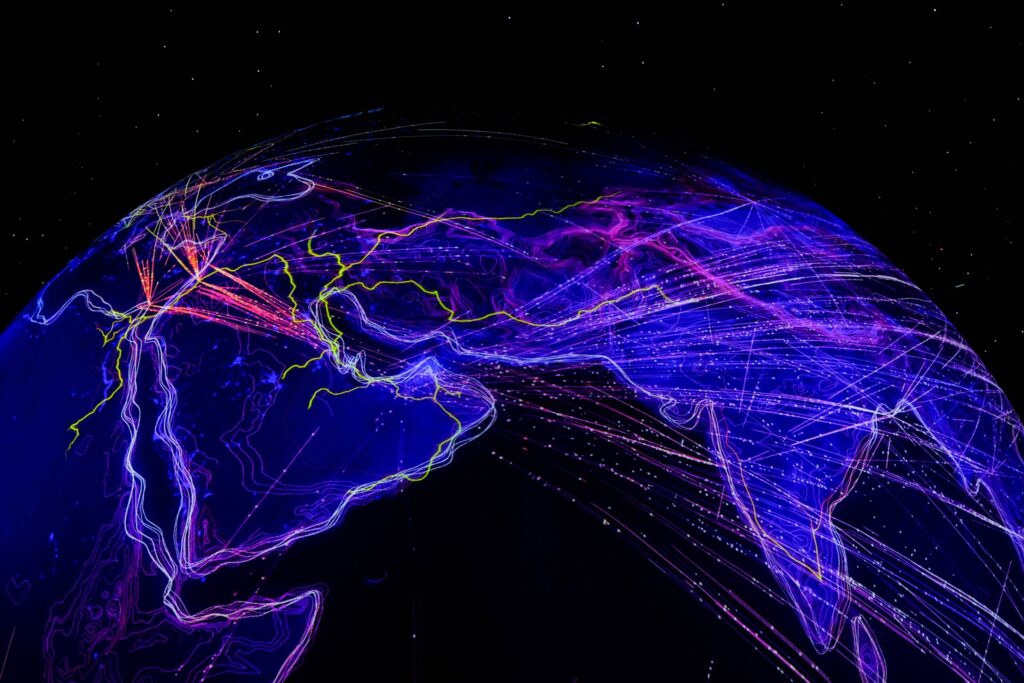To accompany CEP’s new report on AI, Cascade Philanthropy Advisors President Lowell Weiss interviewed 15 leaders from foundations, nonprofits, and affinity groups. In this post, Weiss shares his conversation, edited for clarity and length, with Chris Lehane, head of global policy at OpenAI, about the upsides and downsides of AI for the social sector. In the second post in this two-part series, Weiss shares insights from a number of other interviews he conducted.
Weiss: If you were the CEO of a prominent foundation or nonprofit, how would you be leveraging AI today for making progress against those wicked problems that our sector has been struggling to solve for decades?
Lehane: If I were leading a foundation or nonprofit today, I’d make learning about AI a top priority, and I’d start immediately. The sooner nonprofit leaders understand AI, the better positioned they’ll be to harness its power to scale their impact and avoid falling behind.
We’ve already seen nonprofits get creative with tools like ChatGPT — using them to simplify grant writing, craft outreach materials, and turn complex data into clear insights. These time-savers let teams redirect energy to the work that matters most: serving their communities. AI helps nonprofits punch above their weight by turning hours of drafting, summarizing, or translation into minutes. Others are using the technology to scale their impact. We’ve seen some innovative use cases, including using AI to improve new-hire retention and upskilling; personalizing financial coaching to help low-income households save more money; and helping match students to scholarships.
AI isn’t just another technology. It’s a productivity-driving tool that allows nonprofits to do more good faster and more effectively. The potential is enormous, and the moment to start is now.
Weiss: If the pace of innovation continues to explode, what wicked problems do you reasonably believe AI will allow us to solve in a decade?
Lehane: AI could help identify and predict poverty hotspots, tailor educational resources to each student’s needs in real time, or precisely target interventions to address climate challenges. Imagine a future where nonprofit leaders have AI-powered dashboards that provide instant, actionable insights — enabling faster, smarter decisions.
Nonprofits, equipped with these powerful tools, could not only amplify their existing work but also become pivotal players in achieving these groundbreaking triumphs. Administrative burdens will drop, and more time can be spent helping people. That’s the real unlock.
Ten years from now, I believe we’ll look back and see AI as a crucial partner for nonprofits, significantly enhancing their capacity to make an even greater impact on the world. The technology won’t replace human insight and compassion; it will amplify it.
Weiss: You previously told me that what keeps you up at night is your fear that China could win the AI race. What does that look like? How could foundations and nonprofits help you reduce that risk?
Lehane: Yes, the very real possibility that we wake up in a world where China wins the AI race keeps me up at night. And when I say “wins,” I don’t just mean better algorithms; I mean setting the rules of the road for the most powerful technology humanity has ever created.
If the future of AI is written in Beijing instead of in democratic capitals, we’re looking at a world where surveillance, censorship, and control — not freedom, opportunity, and innovation — are baked into the DNA of the digital infrastructure. This isn’t just about tech; it’s about values. It’s about whether AI will be used to empower people or to control them.
And here’s where foundations and nonprofits come in. You’re not on the sidelines; you’re central to making sure the U.S. and our allies lead in building what I call “small-d democratic AI.” That means:
- Helping ensure access: When nonprofits help communities learn and use AI tools, they democratize opportunity. That keeps AI in the hands of the many, not the few.
- Championing equity: Foundations can fund programs that apply AI to close gaps in education, healthcare, economic mobility — the same gaps that authoritarian models exploit to consolidate power.
- Building public trust: Nonprofits are the connective tissue between tech and the people it’s meant to serve. By modeling responsible use, they help build legitimacy for the right kind of AI leadership.
Weiss: I understand that OpenAI and Anthropic are hybrid organizations focused on public benefit, not traditional corporations. But does the social sector need its own AI platforms to ensure that at least one platform remains open source, independent of the Magnificent 7 (and their billionaire founders), and not driven in any way by profit?
Lehane: Maybe not platforms in the full-stack, trillion-parameter sense — but yes, absolutely, it needs trusted, independent, accessible systems that are aligned with public good. That could mean open-source models or it could mean AI labs embedded at public universities or community foundations. The point is that we need to make AI systems accessible to nonprofit organizations. Because the tools of the Intelligence Age should be shaped by teachers, organizers, healthcare workers — people on the frontlines of making society work.
Bottom line: the social sector doesn’t need to build the next ChatGPT. But it does need a seat at the table, and sometimes its own kitchen, to make sure AI truly benefits people everywhere.
Lowell Weiss is the president of Cascade Philanthropy Advisors, a former deputy director of the Gates Foundation, and a former White House speechwriter.
Editor’s Note: CEP publishes a range of perspectives. The views expressed here are those of the authors, not necessarily those of CEP.
👇Follow more 👇
👉 bdphone.com
👉 ultractivation.com
👉 trainingreferral.com
👉 shaplafood.com
👉 bangladeshi.help
👉 www.forexdhaka.com
👉 uncommunication.com
👉 ultra-sim.com
👉 forexdhaka.com
👉 ultrafxfund.com
👉 bdphoneonline.com
👉 dailyadvice.us
